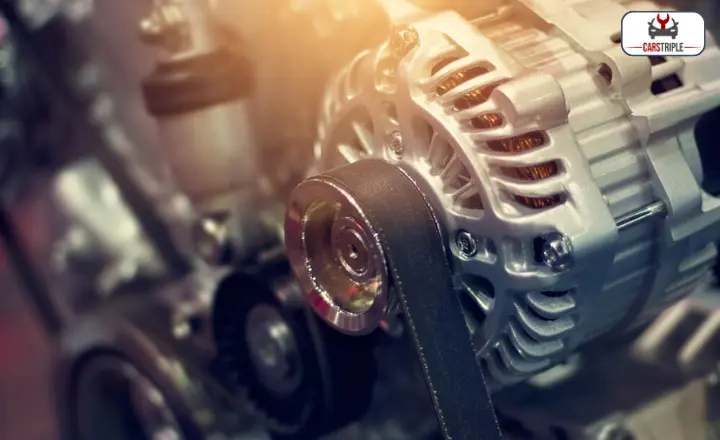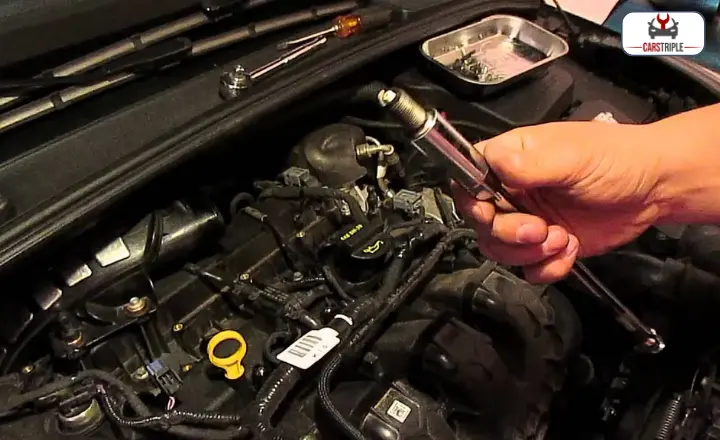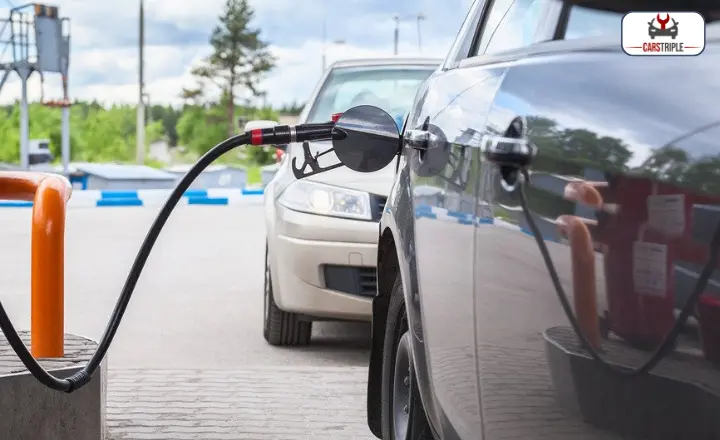There could be various reasons behind a car wont start after getting gas, so it is essential to understand the common culprits and potential solutions. We will explore the possible causes of this problem and provide some troubleshooting tips to help you get back on the road as quickly as possible.
Whether you’re a seasoned driver or a novice, understanding why your car won’t start after getting gas is crucial knowledge that can save you time, money, and unnecessary stress.
How Does the EVAP System Works?
The EVAP (Evaporative Emission Control) system is essential to a vehicle’s emission control system. Its primary function is to capture and store fuel vapours from the fuel tank, preventing them from escaping into the atmosphere. Doing so helps reduce harmful emissions that contribute to air pollution.
The EVAP system consists of several components working together seamlessly. It starts with the fuel tank, which has a vent that allows air to enter when fuel is used or expands due to temperature changes and a pumping gas with car on. The evaporative emission canister near the engine bay is a temporary storage vessel for these fuel vapours.
The purge valve controls when and how much of these stored vapours are released back into the combustion process. When your vehicle is turned off, pressure builds up in the fuel tank due to gasoline vaporization caused by heat. And one more possibility is can you pump gas with the car on.
Causes of Car Wont Start After Getting Gas
There can be several causes why your car not starting after getting gas. Here are some explanations about it.
Fuel pump problems
The fuel pump transfers gasoline from the tank to the engine, ensuring it runs smoothly. If the pump fails or becomes faulty, it may not provide sufficient fuel pressure to start the engine.
One possible cause for a malfunctioning fuel pump is contamination. Sediment and debris can accumulate in your vehicle’s gas tank. Using low-quality or contaminated gasoline could also contribute to a faulty fuel pump, as impurities can damage its internal parts.

The following are signs of a damaged fuel pump in an engine:
- The car is making a sputtering noise when it reaches high speeds.
- The fuel tank is making whining noises.
- The engine runs out of fuel while accelerating.
- Decreased fuel efficiency
A charcoal canister that is broken or clogged
A broken or clogged charcoal canister is one of the common causes of why a car won’t start after getting gas. The charcoal canister is a crucial component of the vehicle’s evaporative emissions control system, designed to capture and store fuel vapours from the gas tank.
This canister may become damaged or clogged for various reasons, such as internal debris, excessive exposure to moisture, or even accidental impact.
Failing Alternator
The alternator charges the battery while the engine runs, providing electrical power to various car components. When the alternator fails, it no longer charges the battery, causing it to lose power over time. This can lead to a drained battery and difficulty starting the car.
One telltale sign of a failing alternator is dimming headlights or interior lights that flicker when driving or idling. As the alternator struggles to provide enough power, these lights may become noticeably weaker.

Another indicator is an illuminated “battery” warning light on the dashboard. If this light stays on even after getting gas, it could suggest an issue with the alternator. A failing alternator may cause other electrical problems, such as malfunctioning power windows or radios.
Battery Problems
There are several ways in which your battery can be affected during this process. If you accidentally leave your headlights on while refuelling or use any other electrical components for an extended period, it could drain the battery’s power.
When filling up with gas, static electricity can build up and cause a spark, leading to a small explosion or fire near the battery. This can damage the internal components and result in a weakened or faulty battery.
Extreme temperatures can also affect your car’s battery performance. In colder climates, low temperatures increase engine oil viscosity, making it harder for the starter motor to turn over the engine.
Fuel filter clog
The fuel filter ensures that only clean fuel reaches the engine. Debris and dirt can accumulate in the filter, obstructing the flow of gasoline. When you fill your tank with gas, it stirs up any sediment or particles, which can get trapped in the filter and prevent proper fuel delivery.
A clogged fuel filter can lead to various issues that prevent your lpg car from starting. Inadequate fuel flow may prevent your engine from receiving insufficient gasoline, leading to misfiring or stalling. If there is a complete blockage in the filter, no fuel will reach the engine. This lack of fuel supply prevents combustion and results in a non-starting vehicle.
Issues with Spark
The spark plug creates an electric spark that ignites the fuel mixture in the combustion chamber. Spark plugs can become worn or fouled with carbon deposits, reducing their ability to create a solid and consistent spark.

They are a common issue that can prevent your car from starting after refuelling. These small but critical components can become coated in deposits from low-quality gasoline or oil leaks. When this happens, they may not create a strong enough spark to ignite the fuel properly. Another potential problem could be worn-out or damaged spark plug wires.
The EVAP Purge Valve is open.
The EVAP system in your vehicle is responsible for controlling emissions by capturing and storing fuel vapours. If the EVAP purge valve becomes stuck open, it can lead to various problems, including difficulty starting your car.
When the EVAP purge valve is open, it creates a vacuum leak and disrupts the air-fuel mixture required for combustion. Your engine may struggle or fail to start altogether.
This problem often occurs after refuelling because excessive pressure from filling up can cause damage to the purge valve or its components. Debris or dirt particles accumulated over time can interfere with its proper functioning.
How To Deal With A Car That Won’t Start After Getting Gas
Check if the fuel pump is working correctly by listening for a humming sound when you turn the key in the ignition. If you don’t hear anything, it could indicate a faulty fuel pump that needs replacing.
Consider whether there might be an issue with the fuel system or lines. Debris or air bubbles can enter the system after refuelling, preventing proper fuel flow.
Try using a fuel system cleaner additive or having a professional flush out your fuel lines. In addition to these troubleshooting steps, you must ensure you’re using the correct type of gasoline for your vehicle.
Conclusion
Experiencing a situation where your car wont start after getting gas can be frustrating and inconvenient. This issue has several potential causes, including a faulty or contaminated fuel pump. It is important to remember that regular maintenance and care for your vehicle can help prevent these problems.
If you are in this predicament, seek professional assistance to diagnose and fix the problem. Remember always to follow proper safety precautions when dealing with automotive issues when a car struggles to start after putting gas in.
FAQ’s
Can bad gas make my car sputter?
Yes, bad gas can make your car sputter. Harmful gas refers to fuel that is contaminated or has a low octane rating. Contaminated fuel can contain impurities such as water, dirt, or debris that can clog your car’s engine’s fuel injectors or fuel lines.
Where Can You Buy A Fuel Cap?
Find a fuel cap at an auto parts store. These stores typically autogas carry various automotive accessories and parts, including fuel caps.

